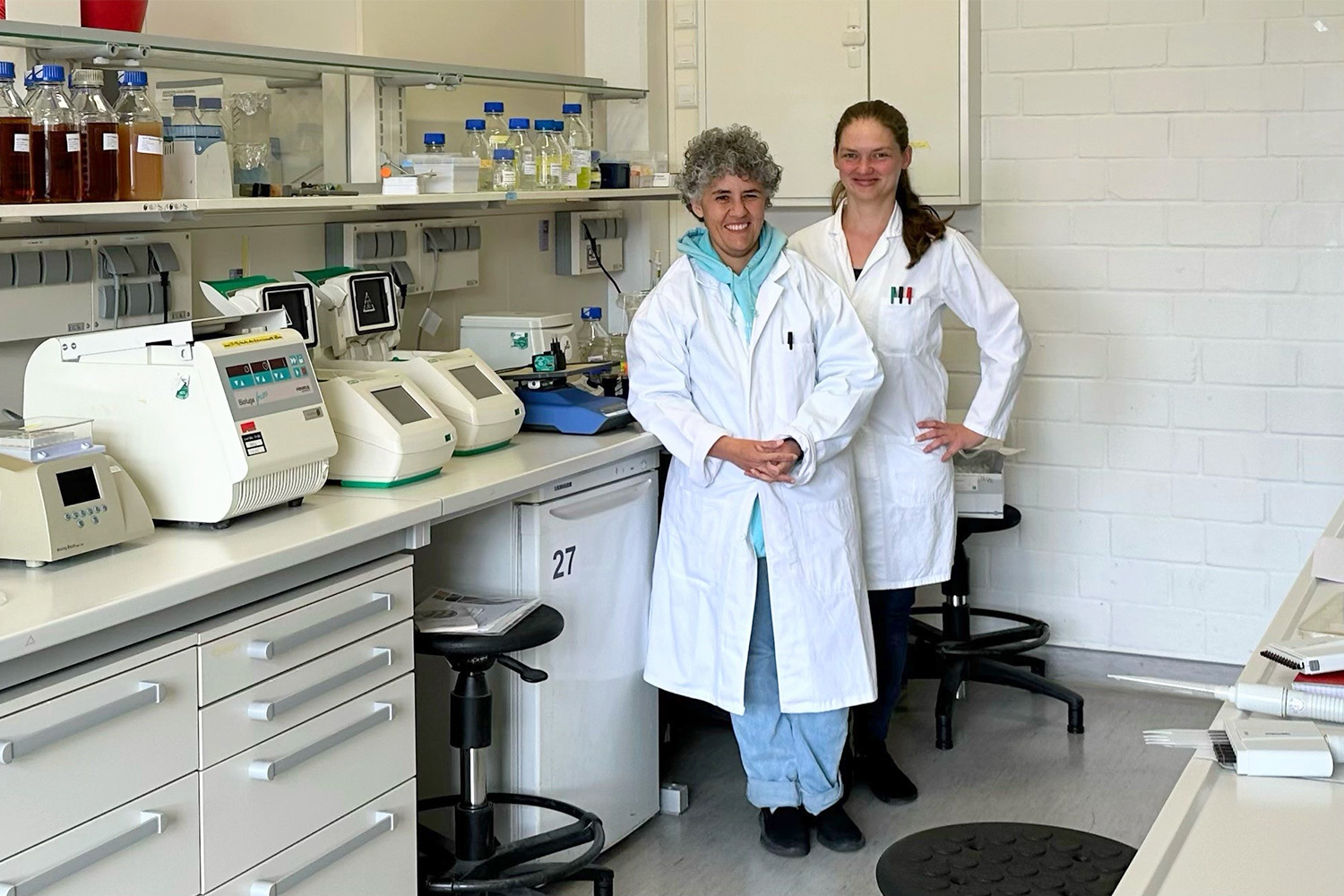Award-winning German-Cuban cooperation in cancer therapy Scientist from the Cuban Center for Molecular Immunology visits the TU Braunschweig for the sixth time
Dr. Gertrudis Rojas Dorantes, a top scientist of the Cuban Centro de Inmunología Molecular (CIM), is visiting the Departments of Biotechnology and Medical Biotechnology at TUBS for the sixth time in 10 years, supported by the Humboldt Foundation and the German Academic Exchange Service (DAAD). This time, Dr. Maren Schubert, group leader in the host department, has joined the cooperation to support the work with her newly developed production method for difficult-to-manufacture biological substances in insect cells.

Dr. Gertrudis Rojas (l.) and Dr. Maren Schubert. Photo credits: Abt. Medizinische Biotechnologie/TU Braunschweig
The international research team has already succeeded in improving the binding strength of the antibody nimotuzumab that is already used as a drug against various types of cancer in e.g. China and Cuba. This could enable even more effective treatment of gliomas, advanced esophageal cancer and squamous cell carcinomas and other types of cancer in the future.
The aim of the two researchers’ current work is to improve the treatment of various types of cancer by altering the immune response with the help of the body’s own stimulants. However, producing these efficiently, and in particular adjusting their properties in a way that only the desired effects are achieved without side effects, requires biotechnological optimization. Here, phage display methods developed by Prof. Stefan Dübel and Prof. Michael Hust, the heads of the Departments of Biotechnology and Medical Biotechnology, were used effectively. The latest success of the research team is the development of an interleukin-2 variant that was significantly improved in terms of production yields, aggregation resistance and stability, as well as in respect of its in vivo enhancement of immune effector reactions and anti-tumor effect.
The joint work of Dr. Gertrudis Rojas Dorantes and the TU Braunschweig has so far resulted in five publications in renowned journals. The project was awarded the Research Prize of the Cuban Academy of Sciences last year. More importantly, however, the jointly developed molecules could actually enable better cancer treatment in the future, as Dr. Rojas reported at the recently concluded congress “The promise of Interleukin-2 therapy” at the Sorbonne University in Paris, where she presented the results. On average, it is estimated that it will take between five and ten years to develop a finished drug.
